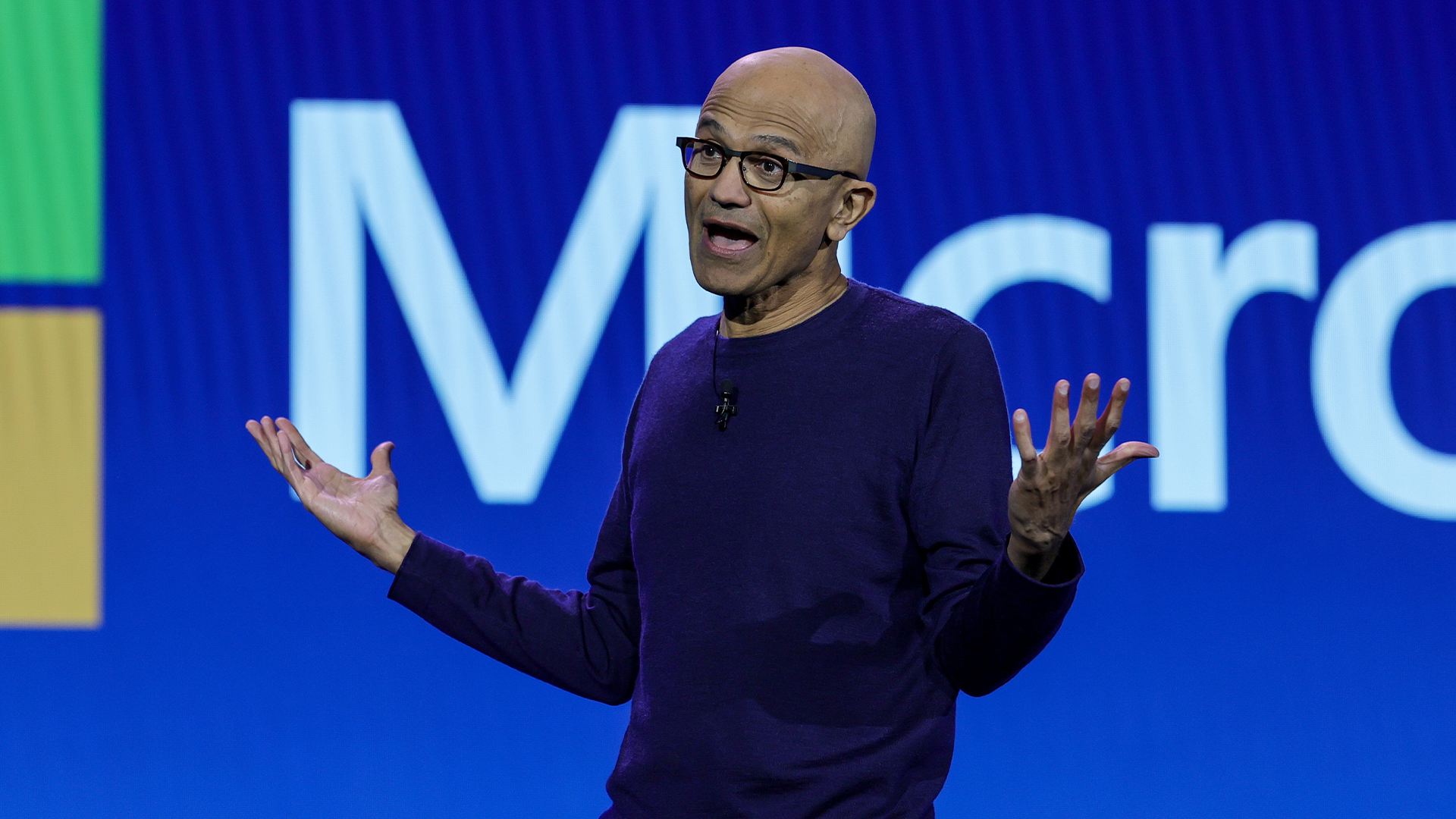Majority of firms failing to meet business sustainability goals
While organizations are aware that business sustainability is important, they're finding it hard to put into practice


A majority of organizations are failing to implement improvements to bolster business sustainability despite a sharpened focus on reducing their environmental impact, according to new research.
A report from Kyndryl and Microsoft shows that while 85% of organizations place a “high strategic level of importance” on achieving sustainability goals, only 16% have integrated sustainability into their strategies and data practices.
Eight-in-ten respondents told Kyndryl they place great significance in technology’s role in achieving their goals. However, fewer than one-third (32%) believe they are making full use of it in their organizations.
"Many companies are at different stages of sustainability maturity," says Faith Taylor, chief sustainability and ESG officer at Kyndryl.
"Companies are applying technology to unlock the full potential of sustainability. They are thinking beyond regulatory compliance to pragmatically execute and advance their sustainability goals."
Although CEOs and boards have made sustainability and digital transformation a priority, many believe they need help with the integration and execution of programs to meet their goals.
Of those companies that have implemented sustainability strategies for more than 10 years, only one-quarter said they have full alignment with finance while under half (44%) have fully aligned sustainability goals with their respective technology departments.
Get the ITPro daily newsletter
Sign up today and you will receive a free copy of our Future Focus 2025 report - the leading guidance on AI, cybersecurity and other IT challenges as per 700+ senior executives
Just half are using automation to improve efficiency and build sustainable operations, and a similar number have digitized their workplaces to support a hybrid work strategy and use technology to reduce the environmental footprint of their organization.
Similarly, six-in-ten organizations use AI to monitor energy use, but only 34% use current data to predict future energy consumption.
"Technology has emerged as a key enabler to sustainability success, and its role will only continue to grow with the advent of more sophisticated AI tools," says Shelly Blackburn, vice president, cross solutions area, Microsoft.
Driving business sustainability objectives
The report recommends streamlining data management for informed decision-making and successful execution of strategies. At present, only 15% of organizations believe they have the capability to provide employees with real-time sustainability insights.
Firms were also advised to expand the use of AI beyond basic reporting to include predictive analytics that assess Scope 3 emissions, forecast energy consumption, and anticipate potential risks such as natural disasters.
In addition, a strong emphasis should be placed on employee education with regard to sustainability objectives. Nearly half of organizations currently lack dedicated resources or have limited internal expertise to contextualize sustainability goals to the workforce.
Great pressure is being placed on organizations globally to improve sustainability, the study found, with much of this coming from customers. Pressure from governments, employees, and investors is also driving focus on sustainability.
RELATED RESOURCE

Discover how your organization can reduce its carbon impact by migrating to the cloud
However, the report found that organizations are keen to see more explicit government mandates and clear-cut guidelines on the matter.
Respondents said governments should prioritize the introduction of comprehensive environmental policies, incentivize sustainable practices in businesses, promote public awareness, and improve international collaboration.
"The key lies in setting the right priorities and an active collaboration between governments and the private sector. Organizations need clear mandates and resources to accelerate their journeys to a greener future," the report concludes.
"The good news is that, globally and across industries, this commitment to sustainability is now important, a stark contrast from a decade ago when it was not even listed as a priority."
Emma Woollacott is a freelance journalist writing for publications including the BBC, Private Eye, Forbes, Raconteur and specialist technology titles.
-
 Bigger salaries, more burnout: Is the CISO role in crisis?
Bigger salaries, more burnout: Is the CISO role in crisis?In-depth CISOs are more stressed than ever before – but why is this and what can be done?
By Kate O'Flaherty Published
-
 Cheap cyber crime kits can be bought on the dark web for less than $25
Cheap cyber crime kits can be bought on the dark web for less than $25News Research from NordVPN shows phishing kits are now widely available on the dark web and via messaging apps like Telegram, and are often selling for less than $25.
By Emma Woollacott Published
-
 "I LOVE this company!" Looking back on 50 years of tech giant Microsoft
"I LOVE this company!" Looking back on 50 years of tech giant MicrosoftOpinion There have been highs, lows, laughs and lots of success in the past 5 decades for the Redmond-headquartered firm
By Maggie Holland Published
-
 The CMA just dropped its probe into the Microsoft–OpenAI deal
The CMA just dropped its probe into the Microsoft–OpenAI dealNews The CMA has dropped its probe into the partnership between Microsoft and OpenAI, saying the deal doesn't give Microsoft a controlling interest over the AI firm.
By Emma Woollacott Published
-
 Microsoft says there’s an AI divide brewing – here’s how enterprises can get on the right side
Microsoft says there’s an AI divide brewing – here’s how enterprises can get on the right sideNews Research from Microsoft and Goldsmiths University suggests there is a growing 'AI divide' among enterprises adopting the technology and those sluggish to react.
By George Fitzmaurice Published
-
 ‘Europe could do it, but it's chosen not to do it’: Eric Schmidt thinks EU regulation will stifle AI innovation – but Britain has a huge opportunity
‘Europe could do it, but it's chosen not to do it’: Eric Schmidt thinks EU regulation will stifle AI innovation – but Britain has a huge opportunityNews Former Google CEO Eric Schmidt believes EU AI regulation is hampering innovation in the region and placing enterprises at a disadvantage.
By Ross Kelly Published
-
 Microsoft promises more AI spending despite cloud cost stumble
Microsoft promises more AI spending despite cloud cost stumbleNews Microsoft recorded revenue and earnings growth in its latest quarterly results, but higher than expected costs in cloud and AI raised investor concerns.
By Nicole Kobie Published
-
 Microsoft staff face second round of layoffs as firm continues cost-cutting measures
Microsoft staff face second round of layoffs as firm continues cost-cutting measuresNews The size of the layoffs has not been specified, though Microsoft has said they will be small
By George Fitzmaurice Published
-
 SoftwareOne to acquire Crayon in $1.4 billion merger deal
SoftwareOne to acquire Crayon in $1.4 billion merger dealNews The merged firm will be 'uniquely positioned' to capitalize on a $150 billion market
By Emma Woollacott Published
-
 Google wants regulators to break up Microsoft's OpenAI deal
Google wants regulators to break up Microsoft's OpenAI dealNews Google has already been nipping at Microsoft’s heels in the European cloud market over competition concerns
By George Fitzmaurice Published
